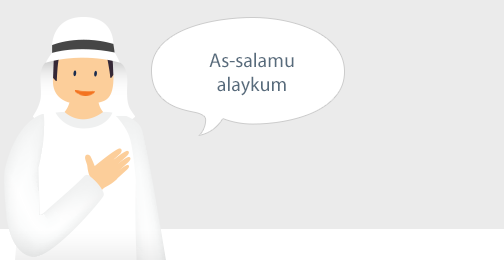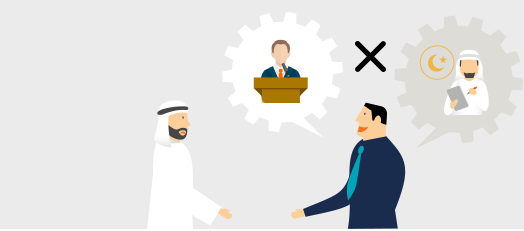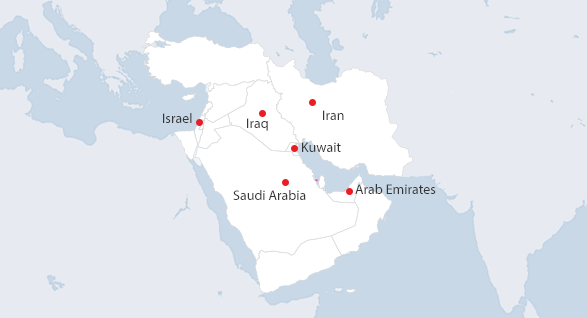Global Business Culture – the Middle East
Which Gestures Should be Avoided in the Middle East?
An executive on a business trip to Saudi Arabia is meeting with local sellers to discuss a potential project. Pleased that everything was going well the executive gave a triumphant "thumbs-up" to his Saudi counterpart while flashing a big smile. Though the executive was attempting to express how pleased he was that everything was on track, he immediately saw his business partner’s expression turn frosty.
Common gestures can have a variety of meanings in different countries and cultures. Even the classic thumbs-up which is almost universally interpreted to mean "good job" or "things are going well" does not carry the same connotation around the world. In the Middle East for example, an upturned thumb represents a vulgar act and is considered an insult.
Business in the Middle East: DOs and DON'Ts
DOs
-

Learn the Arabic greeting,
"As-salamu alaykum," which means "peace be
upon you." Taking the extra step to learn how
to say hello in the local language instantly
creates a friendly rapport. -

Use the right hand to do everything, including
shaking hands, handing over a business card,
or eating. The left hand is reserved for unclean
acts in the Middle East and is not to be used
for interpersonal interactions. -

A younger person should greet an older
person first. When responding to a greeting,
it's customary to give an answer equal in
length or longer than the greeting given. -

Meet Middle Eastern buyers face to face.
Since most people in the Middle East abstain
from alcohol, tea is the beverage of choice.
A conversation over a cup of tea is much more
effective than a phone call or an email.
DON’Ts
-

Drinking or smoking in public during the
month of Ramadan can be a major breach of
etiquette. Food should be eaten after sunset,
which is when the locals will also break their
daily fast. -

Do not ask about the wife of a Middle Eastern
man, even as part of small talk.
Gender segregation is strictly observed across
much of the Middle East, and family matters
are considered private. -

Do not bring up religion or politicians in
conversation. Most countries in the region are
ruled by Islamic law, and religion and politics
can be sensitive topics. -

Avoid scheduling business meetings or visits
during the daily prayers (Salah).
Five salahs take place during each day, and
government offices, banks, restaurants and
most other places are closed for around thirty
minutes during prayer.
(Tip! Salah hours by region can be checked at
http://islamicfinder.org/world?language=en)
Hanwha Group Family Companies in the Middle East
Hanwha Group affiliates in the Middle East include Hanwha Corporation, Hanwha Techwin, Hanwha Engineering & Construction, and Hanwha Q CELLS. The four companies operate seven offices in Kuwait, Iran, Iraq, Israel, the United Arab Emirates, and Saudi Arabia.



